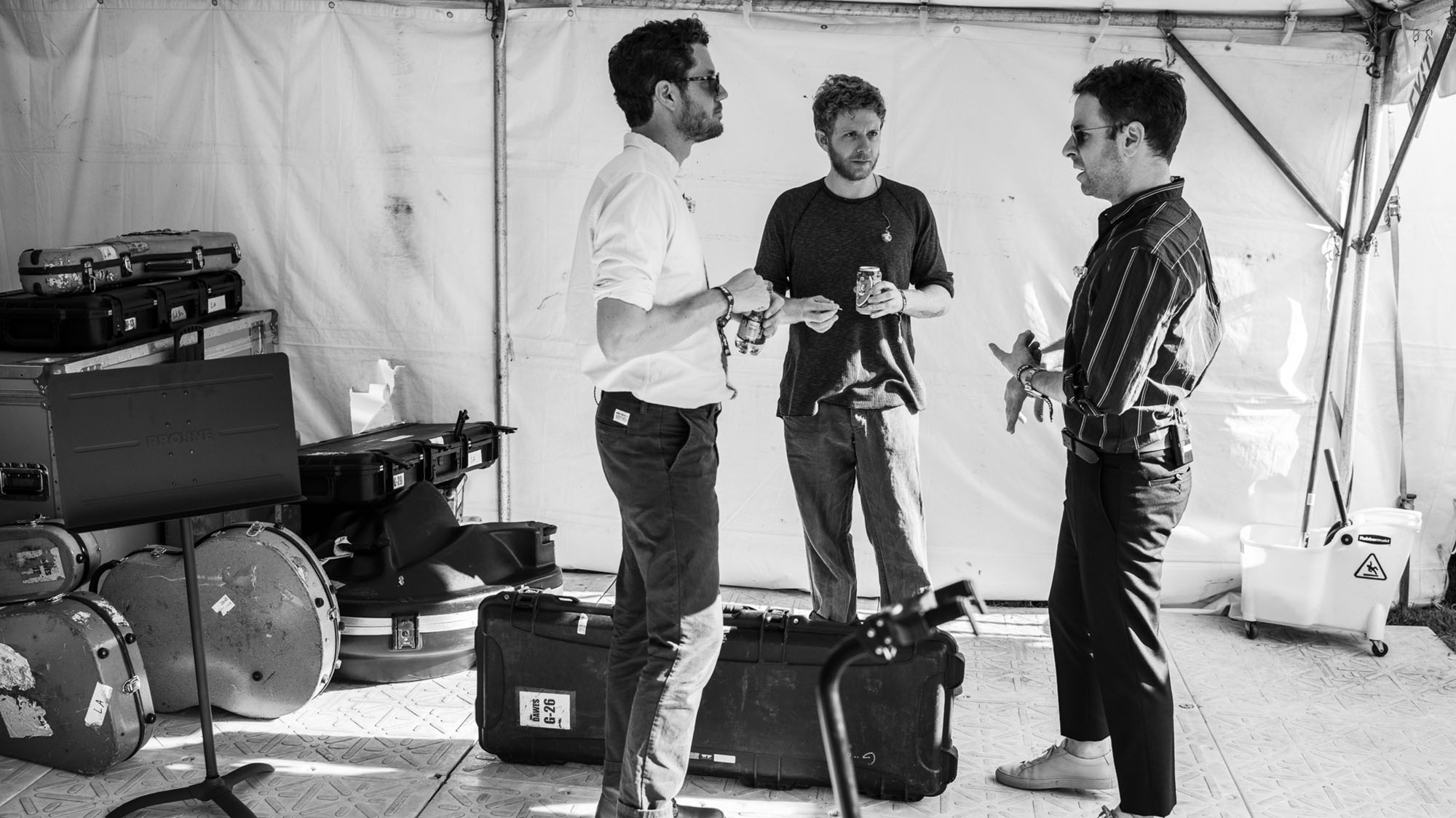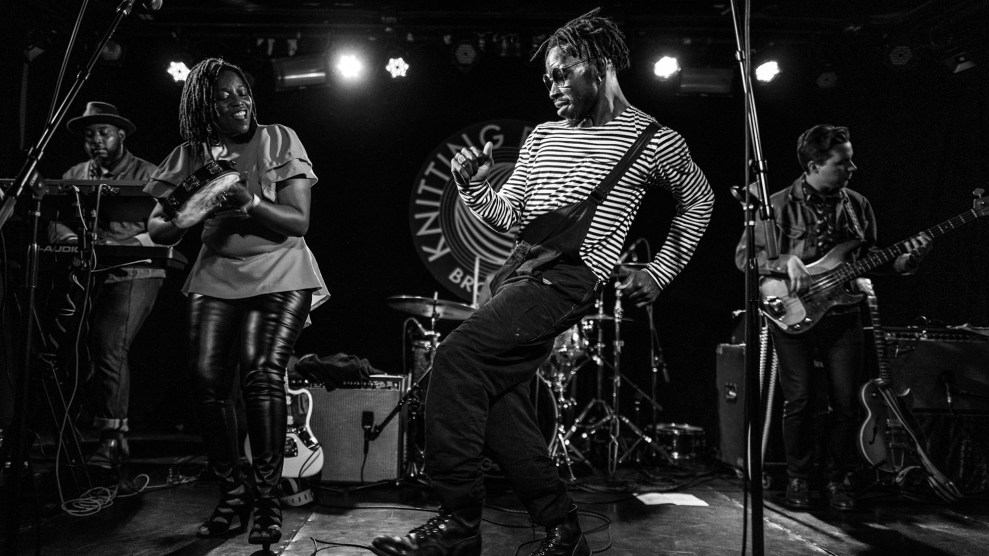American rock band Dawes returned to the Newport Folk Festival to perform their debut album, North Hills, on the 10th anniversary of its release. The performance was an anticipated highlight of the festival and a great representation of what makes Newport Folk Fest special: collegial collaborations with fellow musicians, a sense of collective belonging between the music lovers and the music makers, and the heightened energy and sense of specialness of these only-at-Newport happenings.
Billed as “Dawes and Friends,” the set featured an augmented band. Tom Petty bandmate Benmont Tench was on keyboards, North Hills producer Jonathan Wilson was on guitar, and the set was studded with guest appearances by Jason Isbell, Yola, Lake Street Dive, MC Taylor of Hiss Golden Messenger, the Preservation Hall Jazz Band, Mike Viola and John McCauley of Deer Tick.
Toward the end of the set, leader Taylor Goldsmith told the audience that the embrace of North Hills 10 years ago marked the first time he had a sense of making a life and career out of music. Under a tent filled with people who knew every word of the record, he shared the credit: “These are our songs.”
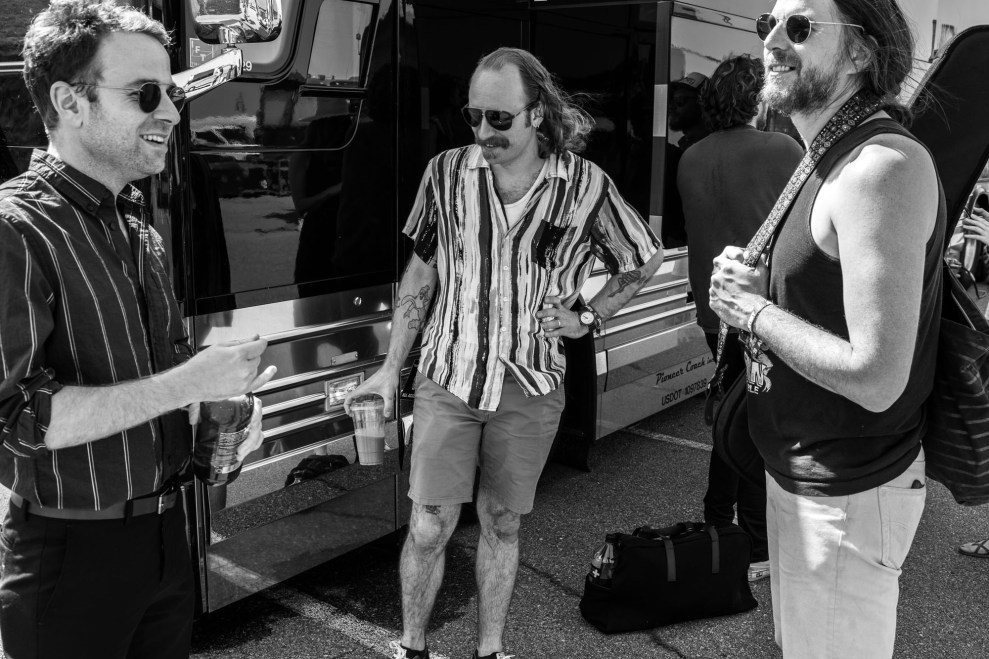
Taylor Goldsmith, John McCauley of Deer Tick, and North Hills producer Jonathan Wilson connect at the tour bus in the artist parking lot.
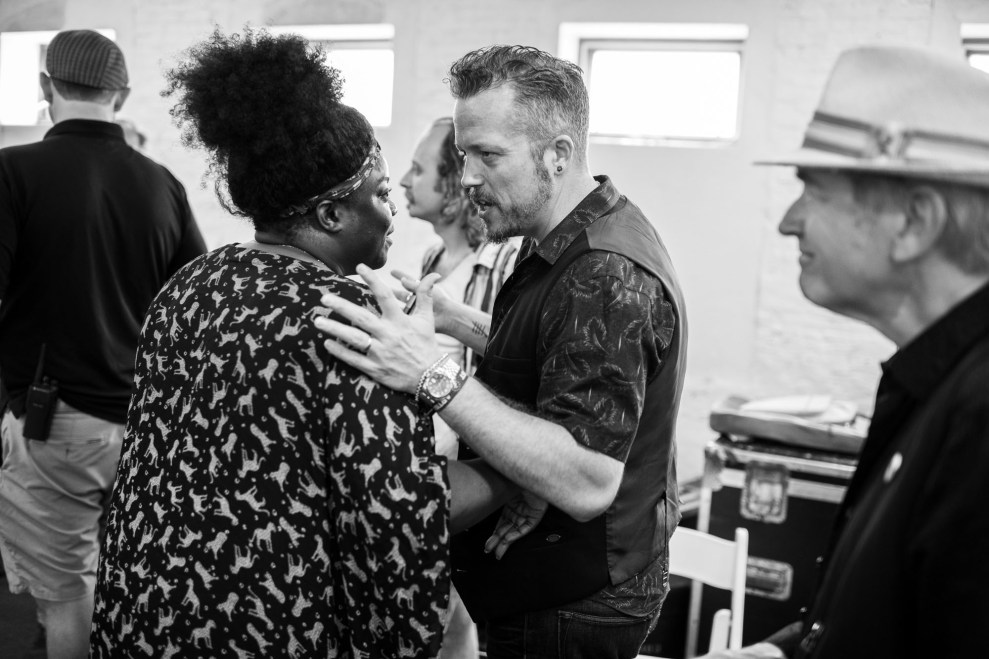
Singer and songwriter Yola and Jason Isbell
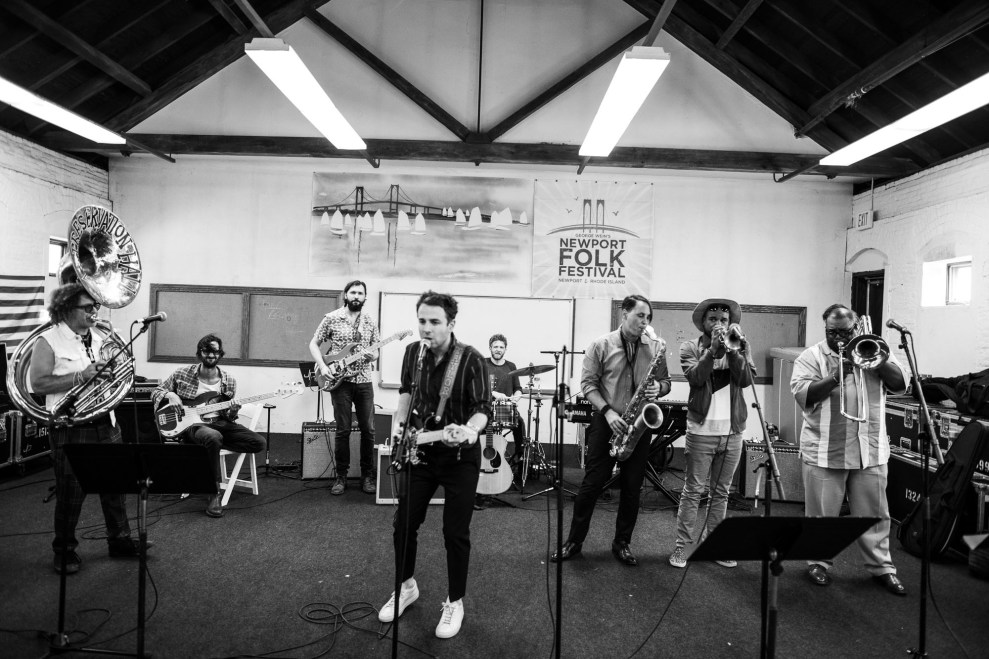
Rehearsing with the horn section from the Preservation Hall Jazz Band
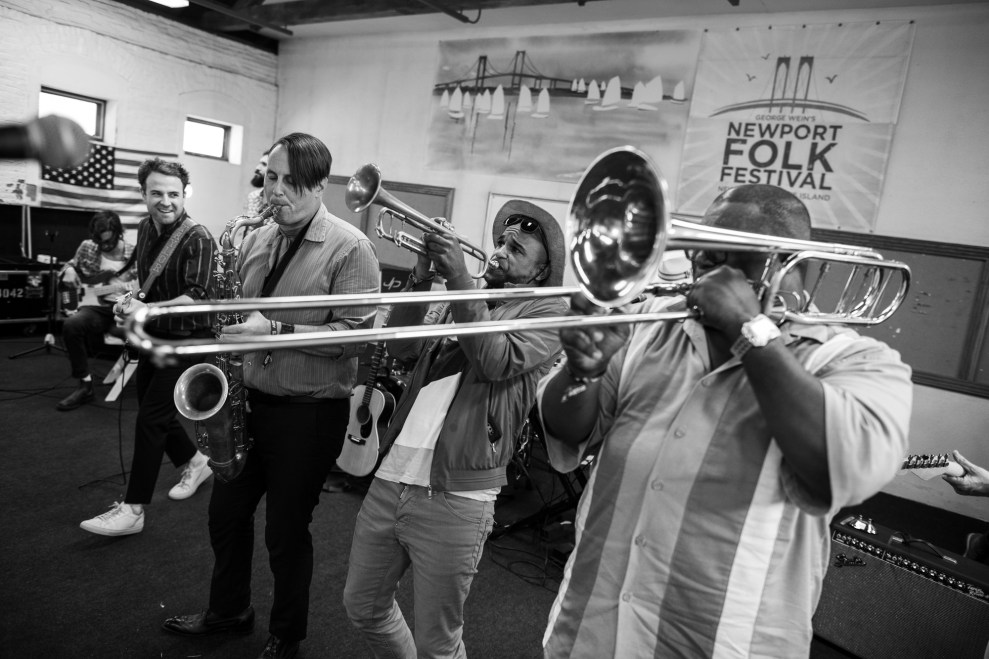
The Preservation Hall Jazz Band’s Clint Maedgen on saxophone, Branden Lewis on trumpet, and Ronell Johnson on trombone brought the celebratory energy to a new level.

Jason Isbell greets the band.
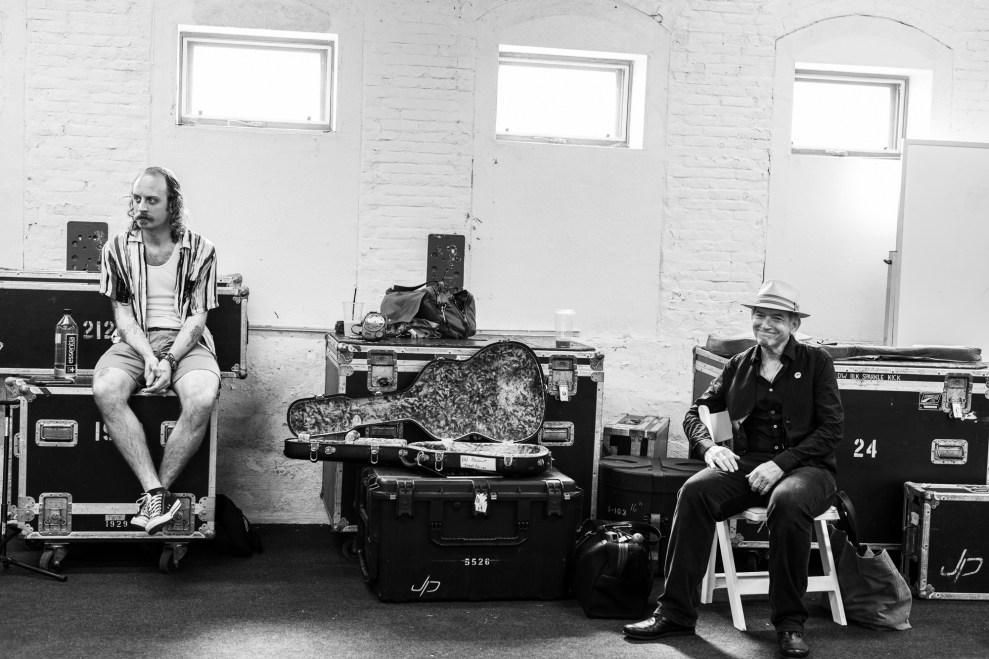
Deer Tick leader John McCauley and Benmont Tench
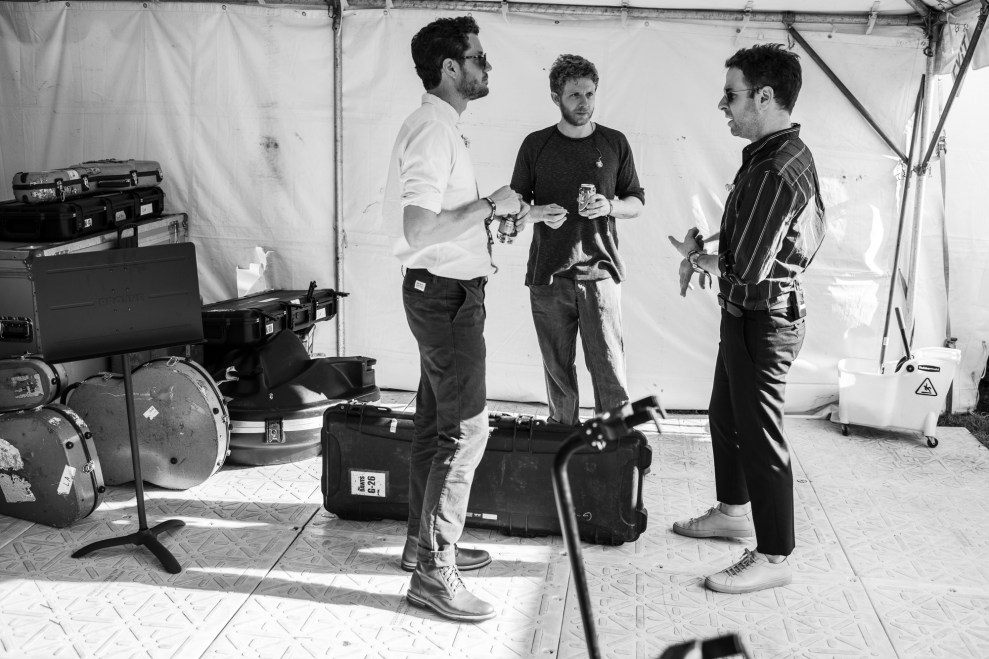
Dawes keyboardist Lee Pardini goes over some last-minute things with Griffin and Taylor Goldsmith immediately before the show.
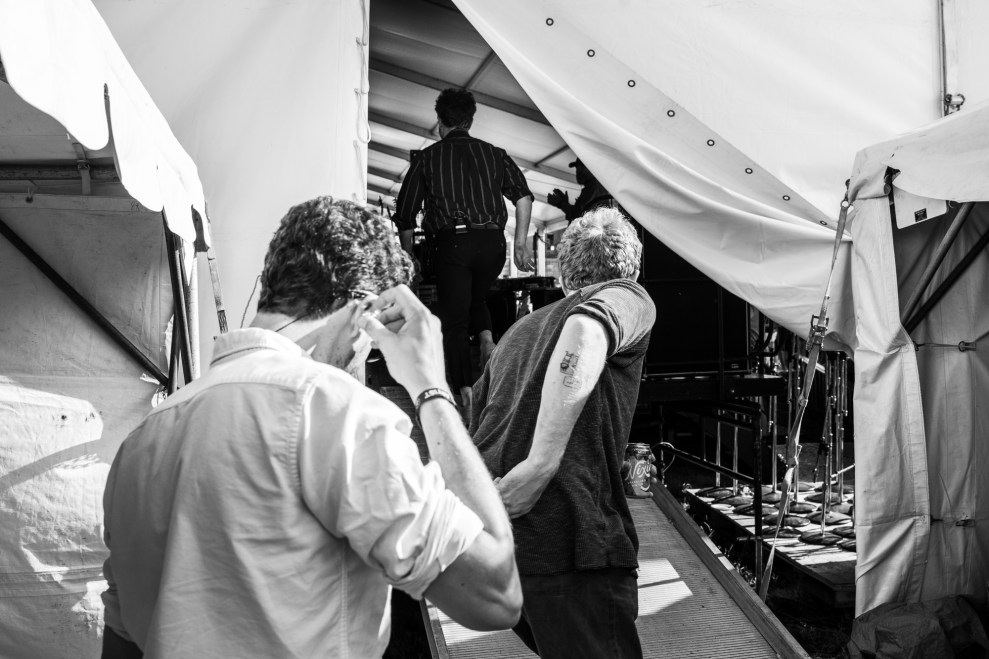
Go time!

Dawes began their set with an a capella version of “Take Me Out of the City.”

Dawes bassist Wylie Gelber

Yola delivered a blistering rendition of “When You Call My Name.”

Fans in the front row

MC Taylor sang “God Rest His Soul.”
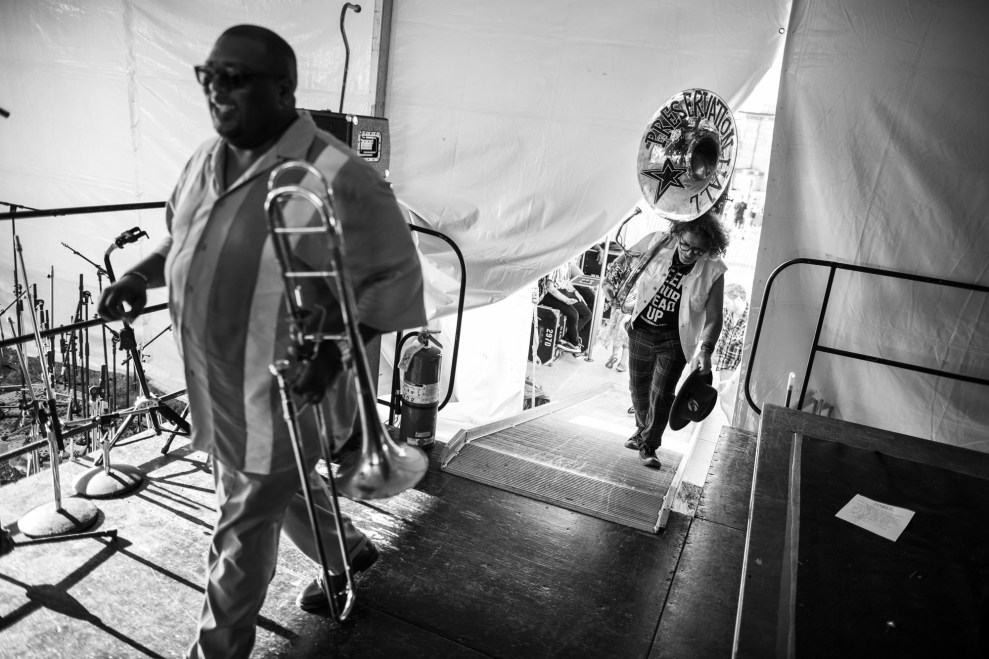
Enter Preservation Hall Jazz Band.

Griffin putting it all into the drum breaks.

John McCauley joins the band to help deliver the anthemic “When My Time Comes” as the closing song of the set.

Benmont Tench

The fellowship between the musicians who have played Newport many times is a special part of the dynamic.
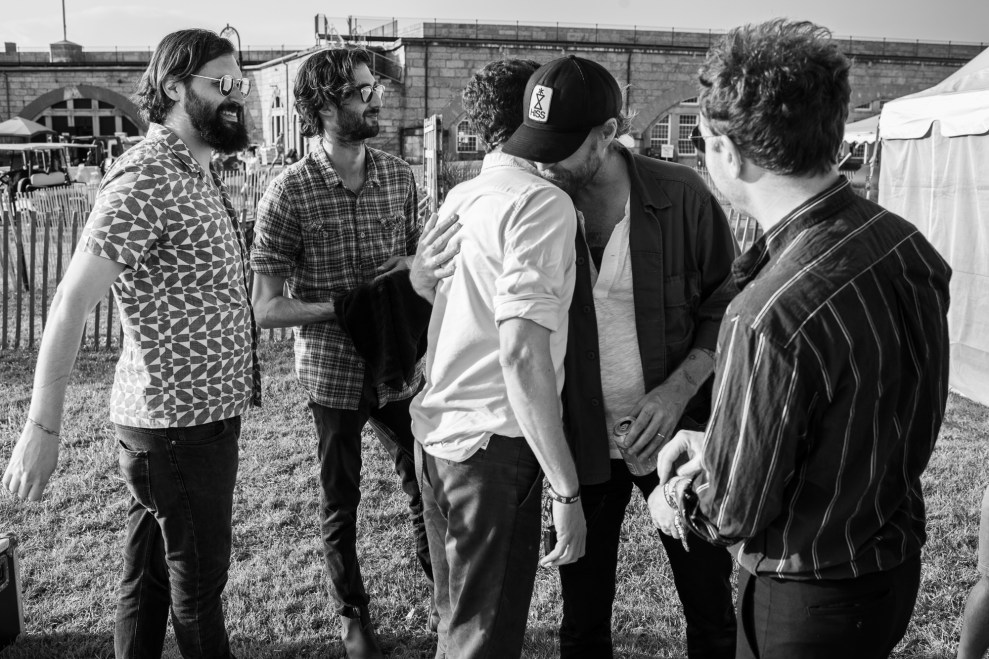
Post-show hugs with MC Taylor
This photo essay is part of On the Road, a series of visual essays that explores the creative lives of notable musicians, onstage and off.
